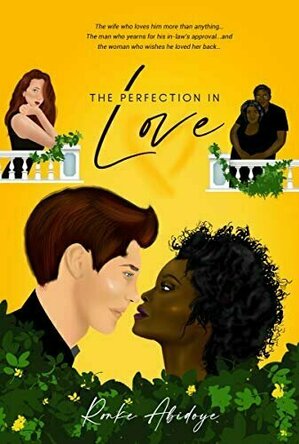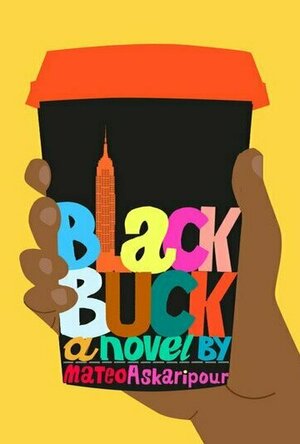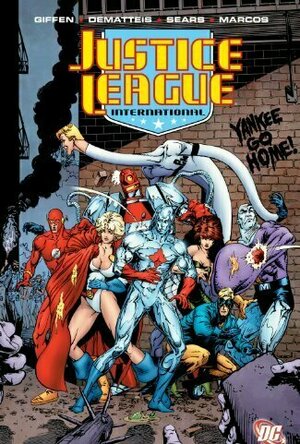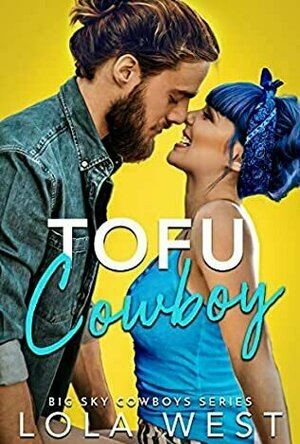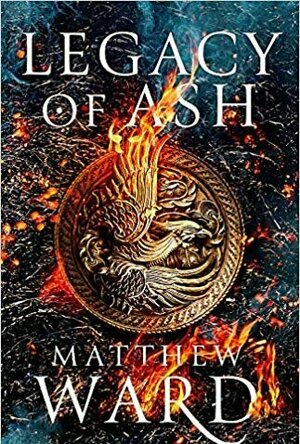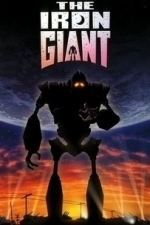Search
Search results
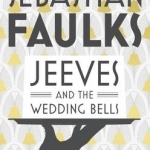
Jeeves and the Wedding Bells
Book
This is a gloriously witty novel from Sebastian Faulks using P.G. Wodehouse's much-loved characters,...
TravelersWife4Life (31 KP) rated The Perfection in Love in Books
Feb 24, 2021
Have you ever just read a book and it felt … right? <i>The Perfection In Love</i> by Ronke Abidoye hit all the right notes for me. It was sweet, sarcastic, and REAL. Did I mention that it is her debut novel? I cannot even begin to imagine how God is going to use her as a writer!
Oyin and Henry’s story is one unmarried people can smile about and married people will remember with abashed fondness. It is a story about choosing to love every day, remembering that you both want each other to be happy, and that Two are better than One so we need to work together. Ronke Abidoye took this situation one step further and added in the stress of visiting family, old friends, and multicultural relationships. I especially enjoyed her portrayal of Oyin and Henry’s weaknesses they were frank and realistic in their insecurities and while I have never been in a multicultural relationship, I thought that Ronke Abidoye explained the situation very well and brought it down to parents needing to learn love and acceptance; and in Henry’s case learning to give up his insecurities. Because in the end we are all Sons and Daughters of the Most High.
I also enjoyed the continual turning to pray for answers by Henry and Oyin, it established an early reliance on faith and God to see things through. The pace and tension were done well and kept me unable to put the book down. A truly wonderful story. Plus, I loved the attention to detail through out the book from the tiny hearts to the <i>Yoruba</i> translated words, they were a unique addition that I wish more authors would do. I sincerely enjoyed this story and loved the unique perspective that Ronke Abidoye took. I definitely recommend reading this book if you like Victoria Bylin, or Beth Troy. 5 out of 5 stars.
*I volunteered to read this book in return for my honest feedback. The thoughts and opinions expressed within are my own.
** Visit my IG for more indepth photos of the book! <a href="https://www.instagram.com/p/CIdM_omA3UL/">TravelersWife4Life</a>;
Oyin and Henry’s story is one unmarried people can smile about and married people will remember with abashed fondness. It is a story about choosing to love every day, remembering that you both want each other to be happy, and that Two are better than One so we need to work together. Ronke Abidoye took this situation one step further and added in the stress of visiting family, old friends, and multicultural relationships. I especially enjoyed her portrayal of Oyin and Henry’s weaknesses they were frank and realistic in their insecurities and while I have never been in a multicultural relationship, I thought that Ronke Abidoye explained the situation very well and brought it down to parents needing to learn love and acceptance; and in Henry’s case learning to give up his insecurities. Because in the end we are all Sons and Daughters of the Most High.
I also enjoyed the continual turning to pray for answers by Henry and Oyin, it established an early reliance on faith and God to see things through. The pace and tension were done well and kept me unable to put the book down. A truly wonderful story. Plus, I loved the attention to detail through out the book from the tiny hearts to the <i>Yoruba</i> translated words, they were a unique addition that I wish more authors would do. I sincerely enjoyed this story and loved the unique perspective that Ronke Abidoye took. I definitely recommend reading this book if you like Victoria Bylin, or Beth Troy. 5 out of 5 stars.
*I volunteered to read this book in return for my honest feedback. The thoughts and opinions expressed within are my own.
** Visit my IG for more indepth photos of the book! <a href="https://www.instagram.com/p/CIdM_omA3UL/">TravelersWife4Life</a>;
Ali A (82 KP) rated Black Buck in Books
Jan 5, 2021
Black Buck follows the story of Darren Vender, an unambitious twenty-two-year-old, Darren lives in a Bed-Stuy brownstone with his mother. He’s happy with his Mom, his long term girlfriend, Soraya, his best friend Jason, and Mr. Rawlings, the man who’s lived on the first floor of his house since before he was born. Darren is even content with just being a shift manager at Starbucks. But his Mom wants nothing more than for Darren to live up to his potential. So when Rhett Daniels, the CEO of Sumwun, New York’s newest tech startup, invites Darren to join the elite team on the thirty-sixth floor, Darren agrees.
Quickly finding out he’s the only Black person in the company and after enduring a “hell week” of training, Darren gets the new name “Buck”, and turns himself into an impressive salesman who becomes unrecognizable to his friends and family. But after a tragic event back home, Buck feels like he hit rock bottom and he begins to make plans to help young people of color make their way into the sales force and it forever changes the game.
This is Mateo Askaripour’s debut novel and what a talent he is! He definitely takes you on a journey that is wild and crazy. This book deals with a lot, the narrator, Buck, puts it all out on the table for the readers to read and experience: racism, gentrification, white privilege, classism, etc.
The story is told with small “notes” from Buck, who is talking to you from a later time. The little notes really make the novel unique and sometimes even funny. There are many characters and many events that keep the story going and growing. You know it’s all somehow going to blow up, because there are so many ways it could, but how it does is the shock.
This book was not what I expected at all and for that I am glad. I will for sure be keeping Mateo Askaripour on my radar for anything he releases in the future.
*Thank you Bookishfirst and HMH Publishing for an ARC copy of this book in exchange for an honest review
Quickly finding out he’s the only Black person in the company and after enduring a “hell week” of training, Darren gets the new name “Buck”, and turns himself into an impressive salesman who becomes unrecognizable to his friends and family. But after a tragic event back home, Buck feels like he hit rock bottom and he begins to make plans to help young people of color make their way into the sales force and it forever changes the game.
This is Mateo Askaripour’s debut novel and what a talent he is! He definitely takes you on a journey that is wild and crazy. This book deals with a lot, the narrator, Buck, puts it all out on the table for the readers to read and experience: racism, gentrification, white privilege, classism, etc.
The story is told with small “notes” from Buck, who is talking to you from a later time. The little notes really make the novel unique and sometimes even funny. There are many characters and many events that keep the story going and growing. You know it’s all somehow going to blow up, because there are so many ways it could, but how it does is the shock.
This book was not what I expected at all and for that I am glad. I will for sure be keeping Mateo Askaripour on my radar for anything he releases in the future.
*Thank you Bookishfirst and HMH Publishing for an ARC copy of this book in exchange for an honest review
Joe Goodhart (27 KP) rated Justice League International, Vol. 5 in Books
Nov 30, 2020
I've been enjoying this trip down Memory Lane. The 80s were a fun time, especially the comics! I remember I couldn't get enough "Bwa-hahahaha", i.e. anything JLI, JLA, or JLE-related, in my life! When they brought then-newcomer Adam Hughes on as artist, JLA got turned out up to 11! Unfortunately, this was not that volume; that's the next volume)!
When I think back to this point in the 80s, the fun times, laugh riot that was the JLA brings a great amount of joy to my collective consciousness. I can't even remember anything I didn't like about any of the stories in the run. Then, I started reading Vol. 5..
So, yeah, the characters were still great fun! I miss the fun Wally West/Flash! :( Giffen and DeMatteis continued to churn out some of the funniest JLA stories! The JLEurope ones weren't AS funny as the JLAmerica/JLI stories were, but still fun nonetheless.
Now, the art? OOF! That's a whole other thing! I don't recall disliking it when I first read the issues in the 80s. I can recall meeting Bart Sears at a comic shop signing around the time of the series debut, and I thought he was friendly and likeable.
However, after this re-visit, I am disappointed to say that I found Sears' art to be not as enjoyable. The characters, both male and female, looked distorted and, in some cases, wicked muscular. And the facial expressions? Um, NO! Yeah, the art was enough of a disappointment that I almost gave it 2 Stars.
The saving grace of this TPB was the last story, from JLI Annual #3, "Around the World with the Justice League". Not only was it the first appearance of the island of Kooeykooeykooey, but it also featured some knockout pencils from Mike McKone and even more stellar inks from Bruce D. Patterson! if memory serves, the team of McKone-Patterson continued to do the annuals for the remainder of the JLI/JLA run.
It's not a perfect TPB, but again, the writing was on target, and the art in the last part of the book was pretty solid. Overall, you can read it, but it won't wow ya! Jus' sayin'...
When I think back to this point in the 80s, the fun times, laugh riot that was the JLA brings a great amount of joy to my collective consciousness. I can't even remember anything I didn't like about any of the stories in the run. Then, I started reading Vol. 5..
So, yeah, the characters were still great fun! I miss the fun Wally West/Flash! :( Giffen and DeMatteis continued to churn out some of the funniest JLA stories! The JLEurope ones weren't AS funny as the JLAmerica/JLI stories were, but still fun nonetheless.
Now, the art? OOF! That's a whole other thing! I don't recall disliking it when I first read the issues in the 80s. I can recall meeting Bart Sears at a comic shop signing around the time of the series debut, and I thought he was friendly and likeable.
However, after this re-visit, I am disappointed to say that I found Sears' art to be not as enjoyable. The characters, both male and female, looked distorted and, in some cases, wicked muscular. And the facial expressions? Um, NO! Yeah, the art was enough of a disappointment that I almost gave it 2 Stars.
The saving grace of this TPB was the last story, from JLI Annual #3, "Around the World with the Justice League". Not only was it the first appearance of the island of Kooeykooeykooey, but it also featured some knockout pencils from Mike McKone and even more stellar inks from Bruce D. Patterson! if memory serves, the team of McKone-Patterson continued to do the annuals for the remainder of the JLI/JLA run.
It's not a perfect TPB, but again, the writing was on target, and the art in the last part of the book was pretty solid. Overall, you can read it, but it won't wow ya! Jus' sayin'...
Debbiereadsbook (1664 KP) rated Tofu Cowboy (Big Sky Cowboys #1) in Books
Oct 28, 2020
wonderful read
Independent reviewer for Archaeolibrarian, I was gifted my copy of this book.
Luke is hiding a secret from his brothers. He takes art classes, and this particular class has a live model today, Maddie. Maddie has a secret too, and it may just break her heart to tell Luke.
My first and lasting feeling about this book is CUTE! Not quite enough to tag it "too stinking cute" but it lands itself well and truly on the "warm and fuzzies" shelf.
It's mostly not too stinking cute simply because of the secret Maddie carries in her soul. It doesn't say it on the blurb, so I'm not saying it here, but it really does break your heart when she tells Luke about it. More so the reasons WHY its like this.
It's steamy, so steamy, but what I really liked about this one was, the time it takes for Luke and Maddie to get down and dirty. They WAIT. They both know it's inevitable they will be jumping into bed together, but they want to get to know each other, properly, before that happens, and I really rather loved that.
As well as the steam, there is emotions, so many emotional moments for such a short book. It's also funny. Maddie is witty and her and Luke banter off each other right from the start. It has some real, actual laugh out loud moments, and I rarely, I mean RARELY react verbally when I'm reading. So well played!
Loved the interaction between Luke and his brothers, but equally, loved that when they found Luke hurting, they shut that sh*t straight down and rallied around him, helping him get the girl of his dreams.
It says its 152 pages, I read it in just over an hour. A great, easy read, perfect for the bath tub or lunch break.
It also appears to be this author's debut novel. So Very VERY well done, one to watch. This is billed as the first in the Big Sky Romances series, I hope it covers Luke's brothers. Billy especially, cos even the little we saw of him here, I can tell he is hurting.
4 really REALLY good stars
**same worded review will appear elsewhere**
Luke is hiding a secret from his brothers. He takes art classes, and this particular class has a live model today, Maddie. Maddie has a secret too, and it may just break her heart to tell Luke.
My first and lasting feeling about this book is CUTE! Not quite enough to tag it "too stinking cute" but it lands itself well and truly on the "warm and fuzzies" shelf.
It's mostly not too stinking cute simply because of the secret Maddie carries in her soul. It doesn't say it on the blurb, so I'm not saying it here, but it really does break your heart when she tells Luke about it. More so the reasons WHY its like this.
It's steamy, so steamy, but what I really liked about this one was, the time it takes for Luke and Maddie to get down and dirty. They WAIT. They both know it's inevitable they will be jumping into bed together, but they want to get to know each other, properly, before that happens, and I really rather loved that.
As well as the steam, there is emotions, so many emotional moments for such a short book. It's also funny. Maddie is witty and her and Luke banter off each other right from the start. It has some real, actual laugh out loud moments, and I rarely, I mean RARELY react verbally when I'm reading. So well played!
Loved the interaction between Luke and his brothers, but equally, loved that when they found Luke hurting, they shut that sh*t straight down and rallied around him, helping him get the girl of his dreams.
It says its 152 pages, I read it in just over an hour. A great, easy read, perfect for the bath tub or lunch break.
It also appears to be this author's debut novel. So Very VERY well done, one to watch. This is billed as the first in the Big Sky Romances series, I hope it covers Luke's brothers. Billy especially, cos even the little we saw of him here, I can tell he is hurting.
4 really REALLY good stars
**same worded review will appear elsewhere**
Ross (3284 KP) rated Legacy of Ash in Books
Dec 21, 2020
Epic but too lengthy
A very ambitious debut novel, epic in scope, cast of characters and plot. However, I found myself struggling to pick it up too often.
The book takes place in an empire with far-from-happy constituent parts and angry neighbours. The heirs of the traitorous Southweald "phoenix" are held captive as figureheads warning off any thoughts of rebellion. Meanwhile, a cliched corrupt council tries to keep the empire safe from impending invasion.
The book is filled with interesting magical creatures and abilities, with a demon, witches, crow-themed goth assassins and ancient spirits. These were at the fore nowhere near often enough, treated as curses and cast aside in favour of political plotting and old fashioned battle.
The first third of the book was awesome: learning about the richness of the world, its history, politics and magic. It really was set up to be an epic story of political intrigue, deception, plotting and underhand nastiness.
Sadly, this all lead to a battle sequence that lasted far too long. It was really like Joe Abercrombie had taken one of the First Law books and shoved The Heroes into the middle of it. I really struggled to get past this long, fairly boring conflict.
The second half of the book then calms down and focuses once again before taking a massive left-turn and changing to something very different.
As with many books of this size, the cast was massive and a number of characters not distinct enough to remember by name. And so many had such promising abilities to offer but were largely absent when they would have been so useful. It was like having a superstar in an amateur dramatic society and leaving them out of most of the script. Having said that, I once saw a pantomime with David Van Day in the cast and it was in everyone's best interests that he was largely absent.
The book finished well, but it was an 800-page book that read like a 1200-page one, taking me 5 weeks to read.
The book takes place in an empire with far-from-happy constituent parts and angry neighbours. The heirs of the traitorous Southweald "phoenix" are held captive as figureheads warning off any thoughts of rebellion. Meanwhile, a cliched corrupt council tries to keep the empire safe from impending invasion.
The book is filled with interesting magical creatures and abilities, with a demon, witches, crow-themed goth assassins and ancient spirits. These were at the fore nowhere near often enough, treated as curses and cast aside in favour of political plotting and old fashioned battle.
The first third of the book was awesome: learning about the richness of the world, its history, politics and magic. It really was set up to be an epic story of political intrigue, deception, plotting and underhand nastiness.
Sadly, this all lead to a battle sequence that lasted far too long. It was really like Joe Abercrombie had taken one of the First Law books and shoved The Heroes into the middle of it. I really struggled to get past this long, fairly boring conflict.
The second half of the book then calms down and focuses once again before taking a massive left-turn and changing to something very different.
As with many books of this size, the cast was massive and a number of characters not distinct enough to remember by name. And so many had such promising abilities to offer but were largely absent when they would have been so useful. It was like having a superstar in an amateur dramatic society and leaving them out of most of the script. Having said that, I once saw a pantomime with David Van Day in the cast and it was in everyone's best interests that he was largely absent.
The book finished well, but it was an 800-page book that read like a 1200-page one, taking me 5 weeks to read.
BankofMarquis (1832 KP) rated The Iron Giant (1999) in Movies
Jun 14, 2020
A Warm Tale of Friendship
In the 1990's, it was rare for a studio besides Disney to release an animated film. So when Warner Brothers (home of Bugs Bunny) decided to release an animated film, everyone expected it to be some sort of "Looney Tunes" and were sorely disappointed when it was not.
And that is too bad...for the film that was released - THE IRON GIANT - is a wonderfully warm and heartwarming tale of friendship, acceptance and, yes, intolerance of those different from you, set against the backdrop of the Cold War of the 1950's.
Marking the full length feature animation Directing debut by Brad Bird (THE INCREDIBLES), THE IRON GIANT tells the tale of young Hogarth, who finds a...well...Iron Giant... who has fallen to Earth from Outer Space. Hogarth befriends The Iron Giant and helps to hide him from Military-types who see this as a threat to the safety, security and superiority of the United States.
Featuring the vocal talents of Jennifer Aniston, John Mahoney, Harry Connick, Jr., Christopher McDonald and Eli Marienthal (as Hogarth), this film is warm and inviting, showing "good characters" that you want to root for and spend time with spar with "bad guys" that you want to see defeated. All of this over a character that is naive to what is going on around him. Special notice should be made of Vin Diesel's vocal work as The Iron Giant. He says very few things, but the words that he does say, convey strong emotions.
You can see the seeds of THE INCREDIBLES in this work of Director Bird. The action sequences are fun and effective and are off-set by slower, more personal, scenes of the characters getting to know - and interact with - each other. He shows a deft touch in balancing these items, finding the right amount of pathos and pace throughout.
The main themes in this film - fearing that which you do not know/do not care to understand resonates to this day and is a reminder that kindness can go much further than fear/ignorance/intolerance.
Letter Grade: A-
8 stars (out of 10) and you can take that to the Bank(ofMarquis)
And that is too bad...for the film that was released - THE IRON GIANT - is a wonderfully warm and heartwarming tale of friendship, acceptance and, yes, intolerance of those different from you, set against the backdrop of the Cold War of the 1950's.
Marking the full length feature animation Directing debut by Brad Bird (THE INCREDIBLES), THE IRON GIANT tells the tale of young Hogarth, who finds a...well...Iron Giant... who has fallen to Earth from Outer Space. Hogarth befriends The Iron Giant and helps to hide him from Military-types who see this as a threat to the safety, security and superiority of the United States.
Featuring the vocal talents of Jennifer Aniston, John Mahoney, Harry Connick, Jr., Christopher McDonald and Eli Marienthal (as Hogarth), this film is warm and inviting, showing "good characters" that you want to root for and spend time with spar with "bad guys" that you want to see defeated. All of this over a character that is naive to what is going on around him. Special notice should be made of Vin Diesel's vocal work as The Iron Giant. He says very few things, but the words that he does say, convey strong emotions.
You can see the seeds of THE INCREDIBLES in this work of Director Bird. The action sequences are fun and effective and are off-set by slower, more personal, scenes of the characters getting to know - and interact with - each other. He shows a deft touch in balancing these items, finding the right amount of pathos and pace throughout.
The main themes in this film - fearing that which you do not know/do not care to understand resonates to this day and is a reminder that kindness can go much further than fear/ignorance/intolerance.
Letter Grade: A-
8 stars (out of 10) and you can take that to the Bank(ofMarquis)
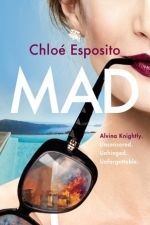
Mad: Mad, Bad and Dangerous to Know Trilogy
Book
In this compulsively readable debut, set between London and Sicily over one blood-drenched week in...
Fiction
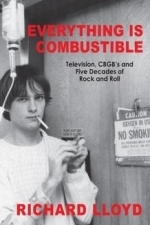
Everything Is Combustible: Television, CBGB's and Five Decades of Rock and Roll: The Memoirs of an Alchemical Guitarist
Book
Legendary Rock and Roll guitarist. Founding member of Television. Masterful storyteller. ...
Music
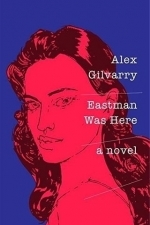
Eastman Was Here
Book
“Absorbing...Eastman is a riveting...presence who demands to be loved and remembered.” —The...
Fiction
